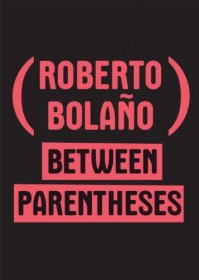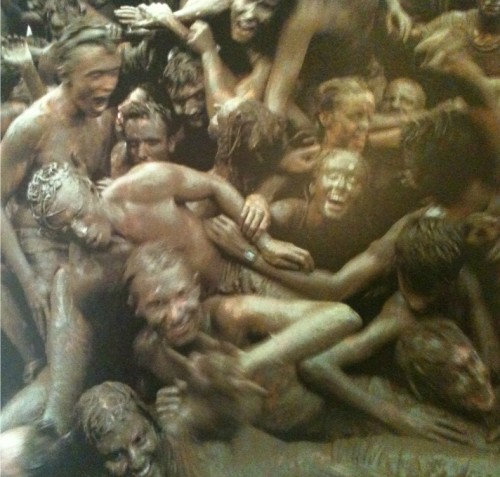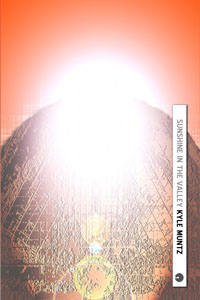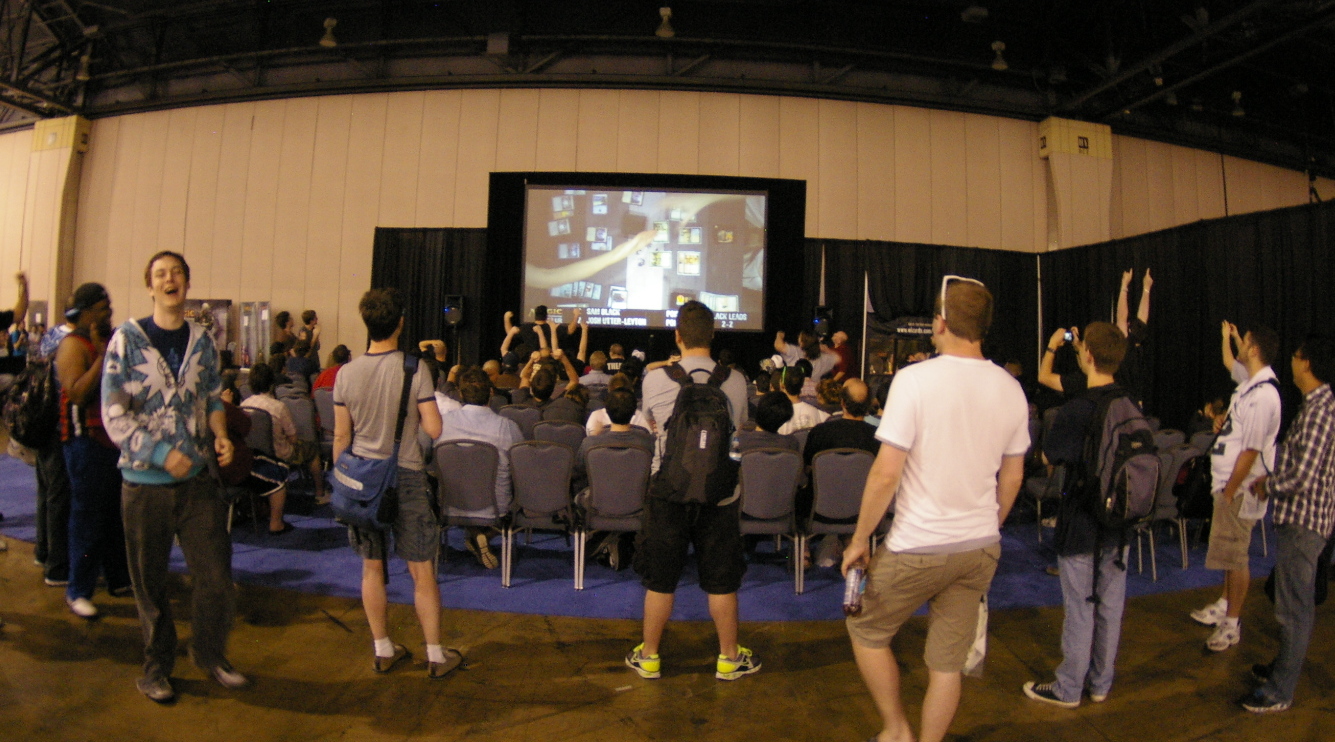Adam Humphreys (creator of the documentary Franz Otto) is making a film about Zachary German. Seems exciting. Here’s a sneak clip:
Between Parentheses
 Between Parentheses
Between Parentheses
by Roberto Bolaño
New Directions, 2011
352 pages / $24.95 Buy from Powell’s
Rating: 9.0
“Reading, said Gil de Biedma, is more natural than writing. I would add (redundancy aside) that it’s also much healthier, no matter what ophthalmologists say. In fact, literature is a long struggle from redundancy to redundancy, until the final redundancy.”
– Roberto Bolaño
Between Parentheses
September 6th, 2011 / 12:30 pm
misericords (foul ball!) 11
11. Agatha Christie on a surf board. Jack Kerouac playing football. Simone de Beauvoir (with posing cad Sartre by her side). Etc.
4. The new Diagram is sick like recycled mustache combs.
3. Anderbo.com wishes to post up to the first 36 manuscript pages of an unpublished novel on its website by December 21st, 2011 for at least the following six months. They will look at the FIRST 36 PAGES (up to 9,000 words) of your e-manuscript submitted to editors@anderbo.com and decide within 60 days of its arrival if want to see more.

2. Glow: “I do not want to read, draw, talk or see tonight. I hope this doesn’t last long,” wrote Francesca Woodman, the photographer who used her own naked teenage body in her work and then killed herself at twenty-two. The day she died, according to her father, she found out she’d lost a grant, and she’d had her bike stolen.
2. The best site on Pac-Man I’ve seen so far.
2. Things about Erroll Morris and his eye/s.
2. An old Diane di Prima sonnet sequence.
1. Wow. Édouard Levé.
0. Here is that link to the Sadness Museum.
BlazeVOX Update
Geoffrey Gatza, the editor of BlazeVOX, has issued a statement. In it he writes:
BlazeVOX is not closing its doors.
That said, I feel like I should explain a bit further the co-operative nature of our business model. I am not going to change what we do, but I do acknowledge that perhaps I could communicate what we do a little better.
I, for one, am glad to hear that BlazeVox will not be closing down, and that Gatza has decided to work toward a more transparent policy.
Conversation abounds: Johannes Göransson, Shanna Compton, Michael Kelleher, Craig Santos Perez, Reb Livingston, Collin Kelley, Justin Evans, and Christopher Janke are among the voices to have weighed in on the subject.
A Kingdom of Kings

Whenever a press or magazine closes or threatens to close or when the reality of their dire financial situation comes to light, everyone freaks out as if it is a surprise that small presses and magazines are constantly facing immense financial pressure. When will the economic realities of small press publishing stop being shocking news? At this level, there are too many of us publishing and not enough readers to sustain these efforts. More people want to edit or publish or be published than want to read books that are published. I don’t know a writer who doesn’t support publishing actively, but there are simply not enough of writers to solve this problem, given the sheer volume of presses and magazines out there. As I noted in my last post on this subject, a day doesn’t go by when I receive at least one press release or request from a new press, magazine, collective, or other publishing endeavor. These editors and publishers basically say, “I have a unique vision and I want to share that vision.” They are more invested in the uniqueness and sharing of their vision than supporting the vision of someone else. How many people in Chris Higgs’s post said, “I’m a small publisher”? We are an army of generals, a kingdom of kings.
Rays of Creation: Sunshine in the Valley by Kyle Muntz
 Sunshine in the Valley
Sunshine in the Valley
by Kyle Muntz
Civil Coping Mechanisms, 2010
222 pages / $14 Buy from Amazon
Through its ecstatic sweep and baroque grandeur, Sunshine in the Valley by Kyle Muntz espouses rays of creation that both illuminate and transfigure the atmosphere. It has an ethereal quality of infinite expansion, with a poetic opulence relating to a kind of freedom without a hint of anxiety or any inhibition. The feeling is like embracing the sky in fullest light – a celestial glow imparting splendor bathed in Uranian auras of mystery and rapture. Gazing through this diamond prism is a true delight.
September 5th, 2011 / 12:00 pm
How The Hell Do We Teach Creative Writing?
I taught a fiction workshop over the summer, I’m currently teaching an introductory fiction class this semester and next semester I will be teaching a graduate workshop. Teaching fiction has been fantastic and by far the most professionally satisfying experience I’ve ever had. I normally teach professional and technical communication so recently I’ve been consumed by the question, “How the hell do we teach creative writing?” It’s so hard to know how to do all of this right.
A great many writers succeed without having ever taken a writing class and there are intangibles that cannot be taught but I am still interested in what we can do where creative writing pedagogy is concerned. How do we best reach and help students in the creative writing classroom? How do we teach students about the elements of creative writing and then how do we teach them to experiment with these elements? I want to assemble a series of guest posts on this subject so I am opening the discussion here because many of us are either teachers or students of creative writing or once were students of creative writing. Anything is possible. I would love to see reflections on what works, what doesn’t work, great classroom experiences or those that were not so great, how to teach creative writing and the introductory, intermediate, advanced, and graduate levels, reading lists with explanations why those texts are being used, instruction on the professional aspects of being a writer, teaching different forms, poetics, and more.
If you’d be interested in writing a guest post, from either the teacher or student perspective, about some aspect of creative writing pedagogy, please get in touch (roxane at htmlgiant.com) so we can talk more.
Magic The Gathering as Literature, part 3: The Vocabulary

Players react as Josh Utter-Leyton defeats Sam Black in the semifinals.
It’s day three of Pro Tour Philadelphia, and the final (“Top 8”) competition is underway. This part of the tournament is webcast (you can watch it live here), and is also being transcribed. (Since this is such high level play, players will want to read descriptions of what, precisely, happened on each turn; this is what Bill Stark was doing in the photo at the top of Part 2.)
These match transcriptions often read like a foreign language to non-players. For example, here’s an excerpt from a write-up of a match played yesterday between Jeremy Neeman and Luis Scott-Vargas:
BlazeVOX Goes Vanity Press?
I saw on Facebook where Matt Bell had written:
A really disheartening post at Bark about BlazeVOX’s new “acceptance” letter for book manuscripts, where they require a $250 donation from the author before publishing. BlazeVOX has published a couple books I’ve really loved, which makes me sorry and disappointed and angry to read this. I know times are tough, but preying on writers isn’t the solution.
I clicked on the link and read the article written by Brett Ortler, which outlines his exchange with BlazeVOX editor Geoffrey Gatza.
I echo Matt’s response: this is troubling and disheartening. For those of you out there who are new to creative writing, who are currently in the process of learning the ropes of publishing, it is considered unethical for a publisher to ask you to pay to have your work published. Back in the day, before the internet, there used to be this thing called The Writer’s Market (maybe it still exists?), which was this huge brick of a book that helped writers find places to send their work. It also included helpful essays about publishing. One of the first rules you would learn by reading The Writer’s Market is that anyone who asks you for money to publish your work should not be trusted.
Like Matt, I admit that BlazeVOX has published a few books I’ve loved (and written about or run promos for here), but this sort of pay-to-publish policy seriously threatens to diminish the press’s legitimacy in my eyes.
And this is what we call fishing for outrage. Anyways, off to go read American Psycho again.
